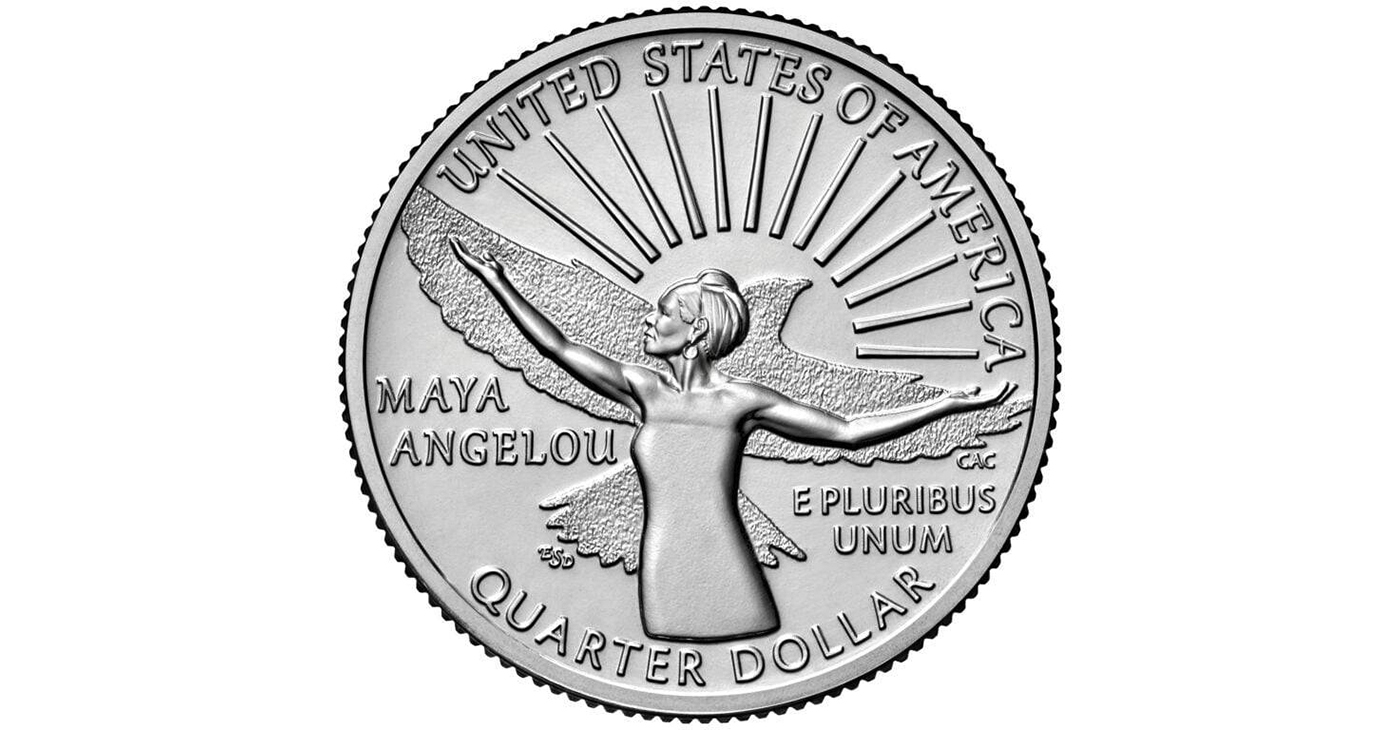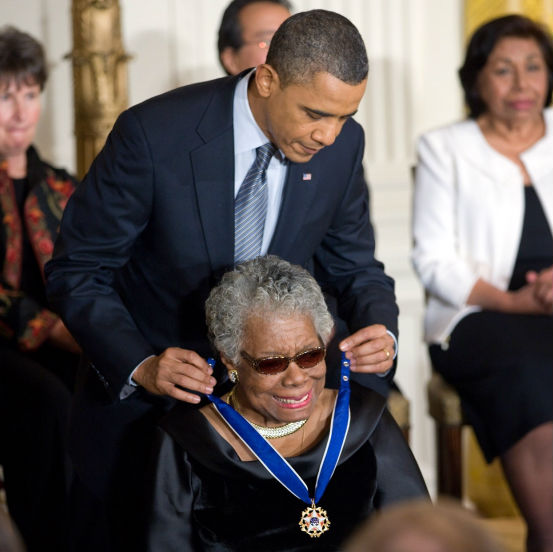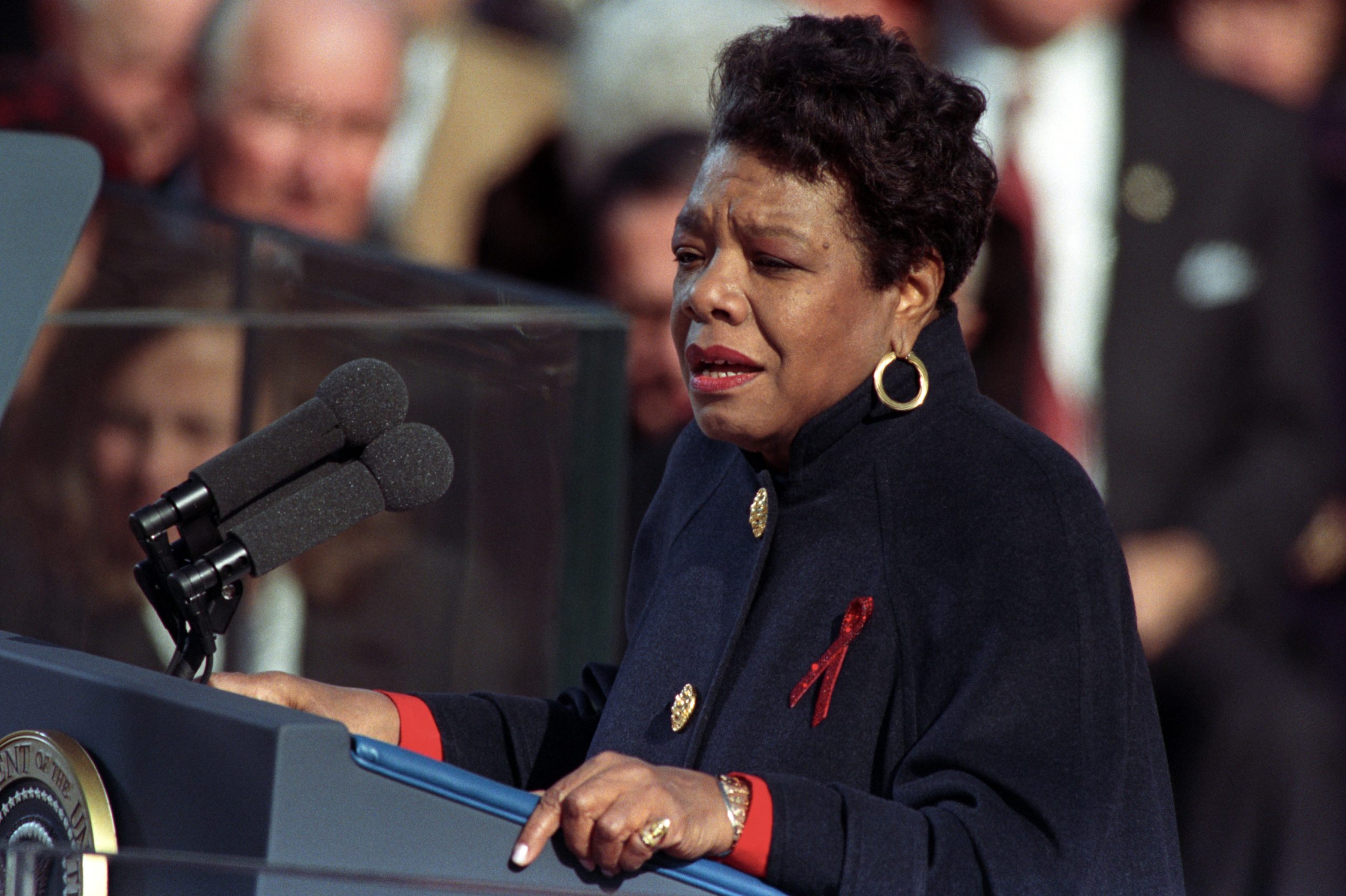Activism
Congresswoman Lee Applauds U.S. Mint Release of Maya Angelou Quarter
Beginning in 2022 and continuing through 2025, the Mint will issue five quarters in each of these years. The ethnically, racially, and geographically diverse group of individuals honored through this program reflects a wide range of accomplishments and fields, including suffrage, civil rights, abolition, government, humanities, science, space, and the arts.

Congresswoman Barbara Lee (CA-13) applauded the United States Mint for beginning shipments of the first coins in the American Women Quarters (AWQ) Program, starting with the Maya Angelou quarter on Monday.
The Mint implemented the new four-year program as authorized by the Circulating Collectible Coin Redesign Act of 2020, bipartisan legislation introduced by Congresswoman Lee along with Representative Anthony Gonzalez (R-OH) and Senators Catherine Cortez Masto (D-NV) and Deb Fischer (R-NE), which was signed into law last year.

President Barack Obama presenting Maya Angelou with the Presidential Medal of Freedom.
These circulating quarters honoring Maya Angelou are manufactured at the Mint facilities in Philadelphia and Denver. Coins featuring additional honorees will begin shipping later this year and through 2025.
“As a leader in the Civil Rights Movement, poet laureate, college professor, Broadway actress, dancer, and the first female African American cable car conductor in San Francisco, Maya Angelou’s brilliance and artistry inspired generations of Americans,” said Lee. “I will forever cherish the private moments I had the privilege to share with Maya, from talking in her living room as sisters to her invaluable counsel throughout the challenges I faced as a Black woman in elected office. I am proud to have led this effort to honor these phenomenal women, who more often than not are overlooked in our country’s telling of history.
“If you find yourself holding a Maya Angelou quarter, may you be reminded of her words, ‘be certain that you do not die without having done something wonderful for humanity.’”
“Maya Angelou’s writing and activism inspired countless Americans and her legacy helped fuel greater fairness and understanding across our nation,” said Senator Catherine Cortez Masto (D-NV), Senate sponsor of the bill.

Maya Angelou reciting her poem “On the Pulse of Morning” at President Bill Clinton’s inauguration in 1993.
“She is exactly the type of leader I had in mind when Senator Fischer, Representative Lee and I wrote our bipartisan legislation to create a series of quarters honoring the contributions of American women. This coin will ensure generations of Americans learn about Maya Angelou’s books and poetry that spoke to the lived experience of Black women.”
“The Maya Angelou quarter will play a historic role to begin the conversation about our nation’s history that perhaps we have never had before,” said Rosie Rios, 43rd Treasurer of the United States. “Our coin and currency institutionalize our history, but to date, too many women have been overlooked from the classrooms to the boardrooms. Maya represents the courage, the advocacy, and most importantly, the voice of so many people who still remain voiceless today.
“She is the first of 20 women to be honored through these quarters as we count up to the 250th anniversary of our nation’s founding in 2026,” Rios continued. “It will no longer be HIStory or HERstory, but Our Story. I want to especially thank Congresswoman Barbara Lee for her tireless support to make my dream of redesigning our nation’s coin and currency a reality. Let the conversation begin.”
“It is my honor to present our Nation’s first circulating coins dedicated to celebrating American women and their contributions to American history,” said Mint Deputy Director Ventris C. Gibson. “Each 2022 quarter is designed to reflect the breadth and depth of accomplishments being celebrated throughout this historic coin program.Maya Angelou, featured on the reverse of this first coin in the series, used words to inspire and uplift.”
A writer, poet, performer, social activist, and teacher, Angelou rose to international prominence as an author after the publication of her groundbreaking autobiography, “I Know Why the Caged Bird Sings.”
Angelou’s published works of verse, non-fiction, and fiction include more than 30 bestselling titles.Her remarkable career encompasses dance, theater, journalism, and social activism. The recipient of more than 30 honorary degrees, Angelou read “On the Pulse of Morning” at the 1992 inauguration of President Bill Clinton.
Angelou’s reading marked the first time an African American woman wrote and presented a poem at a Presidential inauguration. In 2010, President Barack Obama awarded Angelou the Presidential Medal of Freedom, and she was the 2013 recipient of the Literarian Award, an honorary National Book Award for contributions to the literary community.
The reverse (tails), designed by United States Mint Artistic Infusion Program (AIP) Artist Emily Damstra and sculpted by United States Mint Medallic Artist Craig A. Campbell, depicts Maya Angelou with her arms uplifted. Behind her are a bird in flight and a rising sun, images inspired by her poetry and symbolic of the way she lived. Inscriptions are “UNITED STATES OF AMERICA,” “MAYA ANGELOU,” “E PLURIBUS UNUM,” and “QUARTER DOLLAR.”
The obverse (heads) depicts a portrait of George Washington originally composed and sculpted by Laura Gardin Fraser to mark George Washington’s 200th birthday. Though her work was a recommended design for the 1932 quarter, then-Treasury Secretary Mellon ultimately selected the familiar John Flanagan design. Of Fraser, Deputy Director Gibson said, “I am proud that the new obverse design of George Washington is by one of the most prolific female sculptors of the early 20th century. Laura Gardin Fraser was the first woman to design a U.S. commemorative coin, and her work is lauded in both numismatic and artistic circles. Ninety years after she intended for it to do so, her obverse design will fittingly take its place on the quarter.”
Inscriptions are “LIBERTY,” “IN GOD WE TRUST,” and “2022.” The obverse design is common to all quarters issued in the series.
Authorized by Public Law 116-330, the American Women Quarters Program features coins with reverse (tails) designs emblematic of the accomplishments and contributions of trailblazing American women.
Beginning in 2022 and continuing through 2025, the Mint will issue five quarters in each of these years. The ethnically, racially, and geographically diverse group of individuals honored through this program reflects a wide range of accomplishments and fields, including suffrage, civil rights, abolition, government, humanities, science, space, and the arts.
The additional honorees in 2022 are physicist and first woman astronaut Dr. Sally Ride; Wilma Mankiller, the first female principal chief of the Cherokee Nation and an activist for Native American and women’s rights; Nina Otero-Warren, a leader in New Mexico’s suffrage movement and the first female superintendent of Santa Fe public schools; and Anna May Wong, the first Chinese American film star in Hollywood, who achieved international success despite racism and discrimination.
Please consult with your local banks regarding availability of AWQ Program quarters honoring Maya Angelou in late January and early February.
Activism
Oakland Post: Week of April 24 – 30, 2024
The printed Weekly Edition of the Oakland Post: Week of April 24 – 30, 2024

To enlarge your view of this issue, use the slider, magnifying glass icon or full page icon in the lower right corner of the browser window. ![]()
Activism
Oakland Post: Week of April 17 – 23, 2024
The printed Weekly Edition of the Oakland Post: Week of April 17 – 23, 2024

To enlarge your view of this issue, use the slider, magnifying glass icon or full page icon in the lower right corner of the browser window. ![]()
Activism
Oakland Schools Honor Fred Korematsu Day of Civil Liberties
Every Jan. 30, OUSD commemorates the legacy of Fred Korematsu, an Oakland native, a Castlemont High School graduate, and a national symbol of resistance, resilience, and justice. His defiant stand against racial injustice and his unwavering commitment to civil rights continue to inspire the local community and the nation. Tuesday was “Fred Korematsu Day of Civil Liberties and the Constitution” in the state of California and a growing number of states across the country.

By Post Staff
Every Jan. 30, OUSD commemorates the legacy of Fred Korematsu, an Oakland native, a Castlemont High School graduate, and a national symbol of resistance, resilience, and justice.
His defiant stand against racial injustice and his unwavering commitment to civil rights continue to inspire the local community and the nation. Tuesday was “Fred Korematsu Day of Civil Liberties and the Constitution” in the state of California and a growing number of states across the country.
One OUSD school is named in his honor: Fred T. Korematsu Discovery Academy (KDA) elementary in East Oakland.
Several years ago, founding KDA Principal Charles Wilson, in a video interview with anti-hate organization “Not In Our Town,” said, “We chose the name Fred Korematsu because we really felt like the attributes that he showed in his work are things that the children need to learn … that common people can stand up and make differences in a large number of people’s lives.”
Fred Korematsu was born in Oakland on Jan. 30, 1919. His parents ran a floral nursery business, and his upbringing in Oakland shaped his worldview. His belief in the importance of standing up for your rights and the rights of others, regardless of race or background, was the foundation for his activism against racial prejudice and for the rights of Japanese Americans during World War II.
At the start of the war, Korematsu was turned away from enlisting in the National Guard and the Coast Guard because of his race. He trained as a welder, working at the docks in Oakland, but was fired after the bombing of Pearl Harbor in 1941. Fear and prejudice led to federal Executive Order 9066, which forced more than 120,000 Japanese Americans out of their homes and neighborhoods and into remote internment camps.
The 23-year-old Korematsu resisted the order. He underwent cosmetic surgery and assumed a false identity, choosing freedom over unjust imprisonment. His later arrest and conviction sparked a legal battle that would challenge the foundation of civil liberties in America.
Korematsu’s fight culminated in the Supreme Court’s initial ruling against him in 1944. He spent years in a Utah internment camp with his family, followed by time living in Salt Lake City where he was dogged by racism.
In 1976, President Gerald Ford overturned Executive Order 9066. Seven years later, the 9th Circuit Court of Appeals in San Francisco vacated Korematsu’s conviction. He said in court, “I would like to see the government admit that they were wrong and do something about it so this will never happen again to any American citizen of any race, creed, or color.”
Korematsu’s dedication and determination established him as a national icon of civil rights and social justice. He advocated for justice with Rosa Parks. In 1998, President Bill Clinton gave him the Presidential Medal of Freedom saying, “In the long history of our country’s constant search for justice, some names of ordinary citizens stand for millions of souls … To that distinguished list, today we add the name of Fred Korematsu.”
After Sept. 11, 2001, Korematsu spoke out against hatred and discrimination, saying what happened to Japanese Americans should not happen to people of Middle Eastern descent.
Korematsu’s roots in Oakland and his education in OUSD are a source of great pride for the city, according to the school district. His most famous quote, which is on the Korematsu elementary school mural, is as relevant now as ever, “If you have the feeling that something is wrong, don’t be afraid to speak up.”
-

 Activism4 weeks ago
Activism4 weeks agoOakland Post: Week of March 27 – April 2, 2024
-

 #NNPA BlackPress4 weeks ago
#NNPA BlackPress4 weeks agoBeloved Actor and Activist Louis Cameron Gossett Jr. Dies at 87
-

 Community1 week ago
Community1 week agoFinancial Assistance Bill for Descendants of Enslaved Persons to Help Them Purchase, Own, or Maintain a Home
-

 Activism3 weeks ago
Activism3 weeks agoOakland Post: Week of April 3 – 6, 2024
-

 Business2 weeks ago
Business2 weeks agoV.P. Kamala Harris: Americans With Criminal Records Will Soon Be Eligible for SBA Loans
-

 Activism2 weeks ago
Activism2 weeks agoOakland Post: Week of April 10 – 16, 2024
-

 Community2 weeks ago
Community2 weeks agoAG Bonta Says Oakland School Leaders Should Comply with State Laws to Avoid ‘Disparate Harm’ When Closing or Merging Schools
-

 Community7 days ago
Community7 days agoOakland WNBA Player to be Inducted Into Hall of Fame





















































